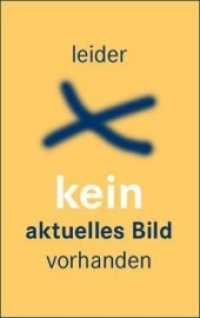- ホーム
- > 洋書
- > 英文書
- > Business / Economics
基本説明
Reviews Japanese reception to various schools of economic thought.
Full Description
Offers reflections and interpretations of Walras' and Pareto's contributions to topics including the importance of the social sciences, the development of modern microeconomics and econometrics, political economy and public choice, and political sociology.






